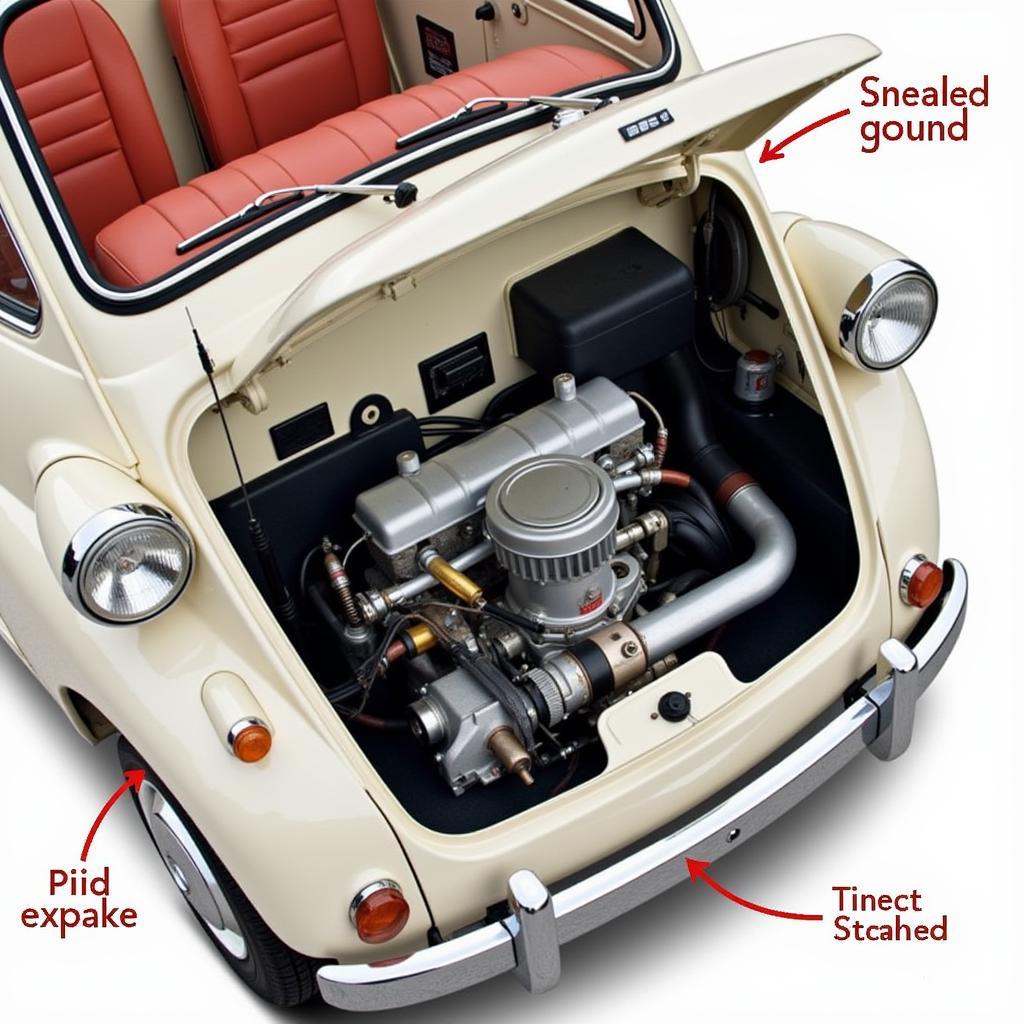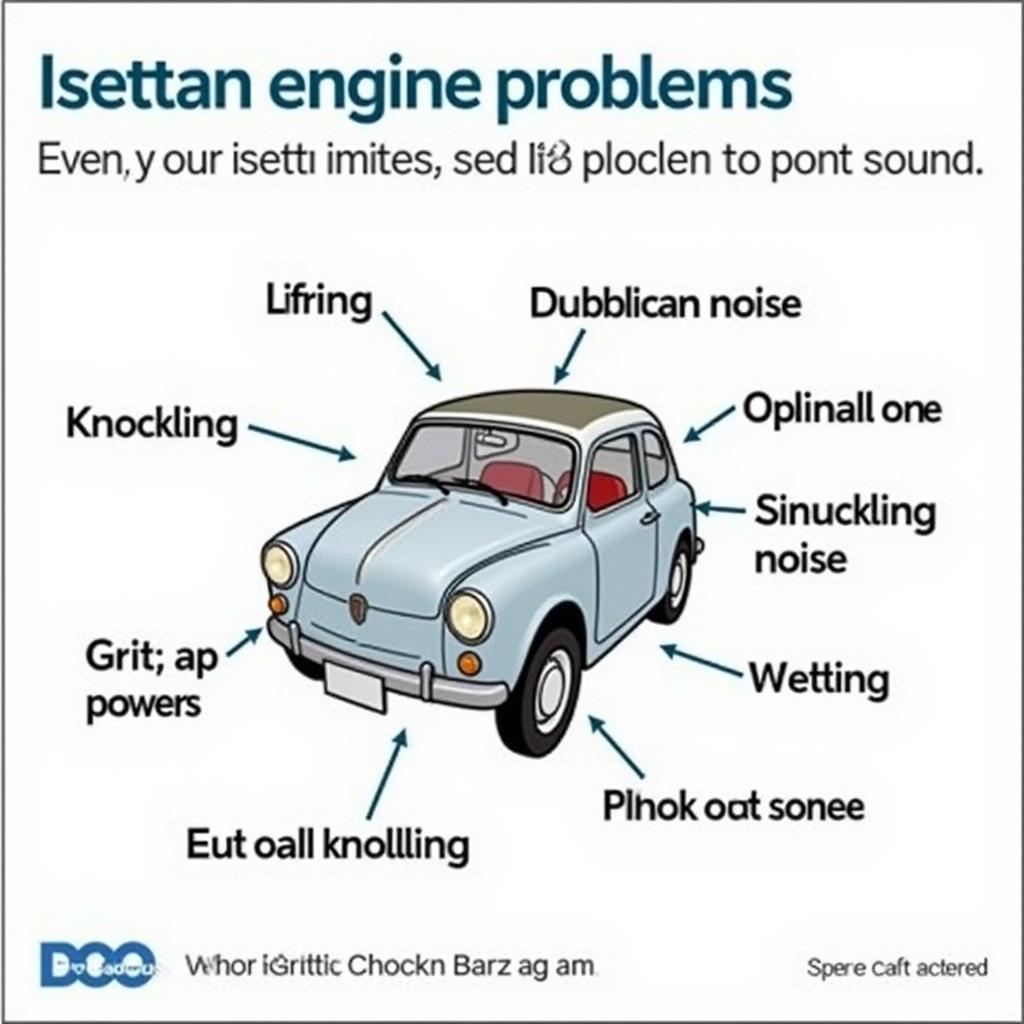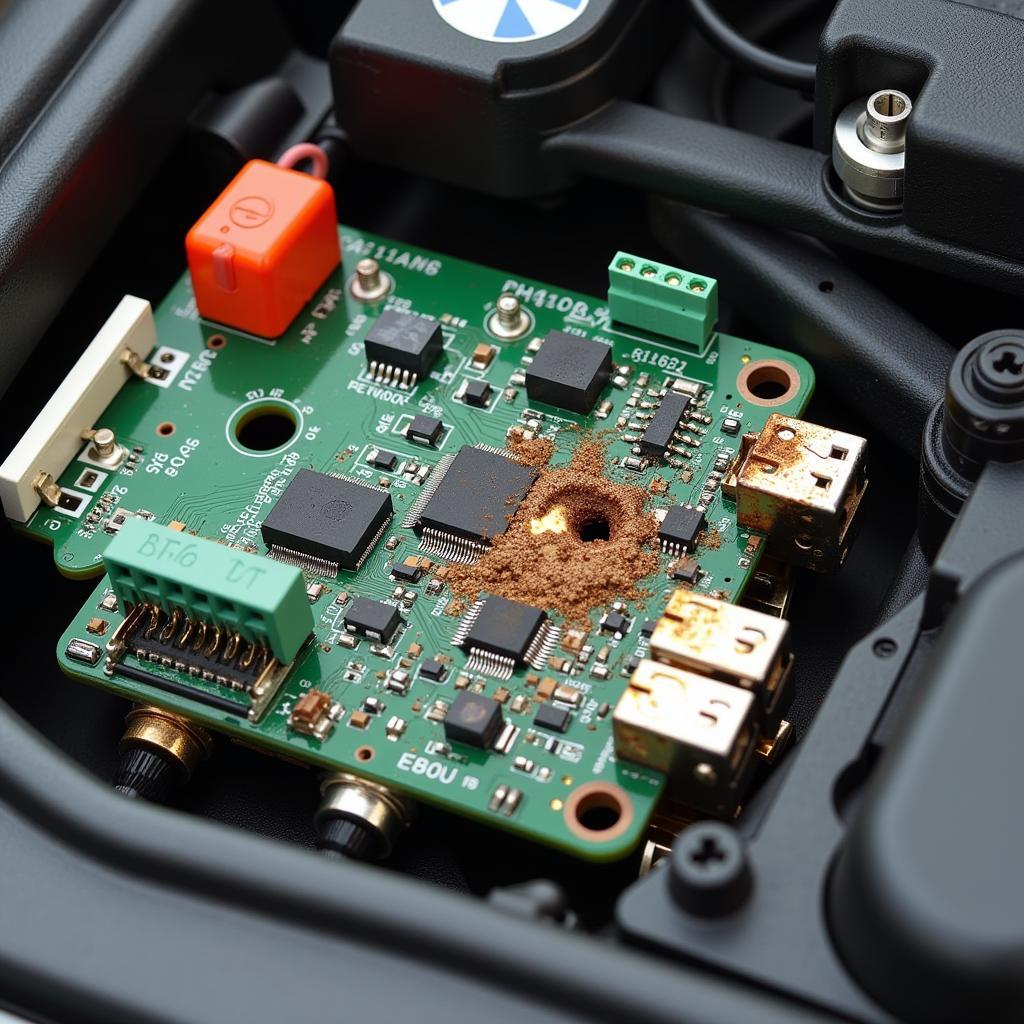The distinct BMW Isetta sound is as unique as its bubble-car design. From the quirky putter of its engine to the distinctive clicks of its door mechanism, this microcar offers a symphony of sounds that are both charming and nostalgic. This guide delves into the intricacies of the Isetta’s audio profile, exploring its mechanical origins, common issues, and diagnostic approaches for enthusiasts, mechanics, and curious minds alike.
Understanding the Isetta’s Mechanical Heartbeat
The BMW Isetta’s sound is primarily defined by its small, yet mighty engine. Originally a motorcycle engine, this single-cylinder powerhouse provides the distinctive putt-putt that has become synonymous with the Isetta. This unique sound is further shaped by the car’s diminutive size and lightweight construction. The lack of sound deadening materials, common in modern cars, allows the engine’s mechanical whirring and clicking to be more pronounced, adding to the Isetta’s unique auditory experience. The simple mechanics also contribute to a more raw and unfiltered sound compared to modern vehicles.
Deciphering Normal Operating Sounds
A healthy Isetta engine should have a consistent, rhythmic putter. It shouldn’t be overly loud or strained. Understanding the normal operating sounds is crucial for identifying potential issues. Listen for a smooth idle, consistent acceleration, and a gentle whirring from the engine compartment. Clicks and clunks from the single-cylinder engine are also considered normal, reflecting the simplicity of its design.
 BMW Isetta Engine Sound: Identifying Normal Operation
BMW Isetta Engine Sound: Identifying Normal Operation
Identifying Common Isetta Sound Issues
While the Isetta’s sound is part of its charm, certain sounds can indicate problems. A knocking sound, for example, could suggest a problem with the engine’s internals, such as worn bearings or piston slap. A grinding noise might point towards issues with the transmission or clutch. Similarly, a whistling sound could indicate a vacuum leak. Identifying these unusual sounds early on is crucial for preventing further damage.
 BMW Isetta Unusual Engine Sounds: Troubleshooting Guide
BMW Isetta Unusual Engine Sounds: Troubleshooting Guide
Diagnosing and Addressing Sound Problems
Diagnosing sound issues requires a keen ear and a systematic approach. Start by isolating the source of the sound. Is it coming from the engine, the transmission, or elsewhere? Once you’ve pinpointed the general area, use diagnostic tools and techniques to identify the specific component causing the problem. Remote diagnostic software can be invaluable in analyzing engine performance and identifying underlying issues.
Remote Diagnostics and Programming for the Isetta
Despite its age, the Isetta can benefit from modern diagnostic techniques. Remote diagnostic software and programming can be used to analyze engine data, identify fault codes, and even reprogram certain control modules. This allows for a more precise diagnosis and targeted repairs, saving both time and money.
The Future of Isetta Sound
As electric vehicle conversions become more popular, the future of the Isetta sound is evolving. Electric conversions offer a quieter and more environmentally friendly alternative to the traditional gasoline engine. However, some enthusiasts are working to recreate the classic Isetta sound electronically, preserving the car’s unique auditory signature for future generations.
Conclusion
The BMW Isetta sound is an integral part of its quirky charm. By understanding the normal operating sounds, recognizing potential problems, and utilizing modern diagnostic techniques, you can keep your Isetta humming happily for years to come. This unique sound, a blend of mechanical whirring and rhythmic puttering, continues to captivate enthusiasts and serve as a reminder of the car’s iconic status. So, keep your ears open and enjoy the distinctive symphony of the BMW Isetta.
FAQ
- What is the most common cause of a knocking sound in an Isetta engine? Worn engine bearings are often the culprit behind a knocking sound.
- Can remote diagnostics be used on a classic car like the Isetta? Yes, remote diagnostics can be a valuable tool for analyzing engine performance and identifying issues in classic cars.
- Is it normal for an Isetta engine to make clicking sounds? Yes, clicks and clunks are typical due to the simple design of the single-cylinder engine.
- What does a whistling sound indicate in an Isetta? A whistling sound often suggests a vacuum leak.
- How can I preserve the classic Isetta sound in an electric conversion? Some enthusiasts are exploring electronic sound emulation to recreate the original engine noise.
- What are some resources for learning more about Isetta maintenance? Online forums, specialized mechanics, and classic car clubs are great resources for Isetta owners.
- Where can I find parts for my Isetta? Several suppliers specialize in classic BMW parts, including those for the Isetta.
Need Help with your BMW Isetta?
For expert assistance with your BMW Isetta’s sound or any other mechanical issue, contact us via Whatsapp: +1 (641) 206-8880, Email: [email protected] or visit our workshop at 276 Reock St, City of Orange, NJ 07050, United States. Our 24/7 customer support team is ready to help.


